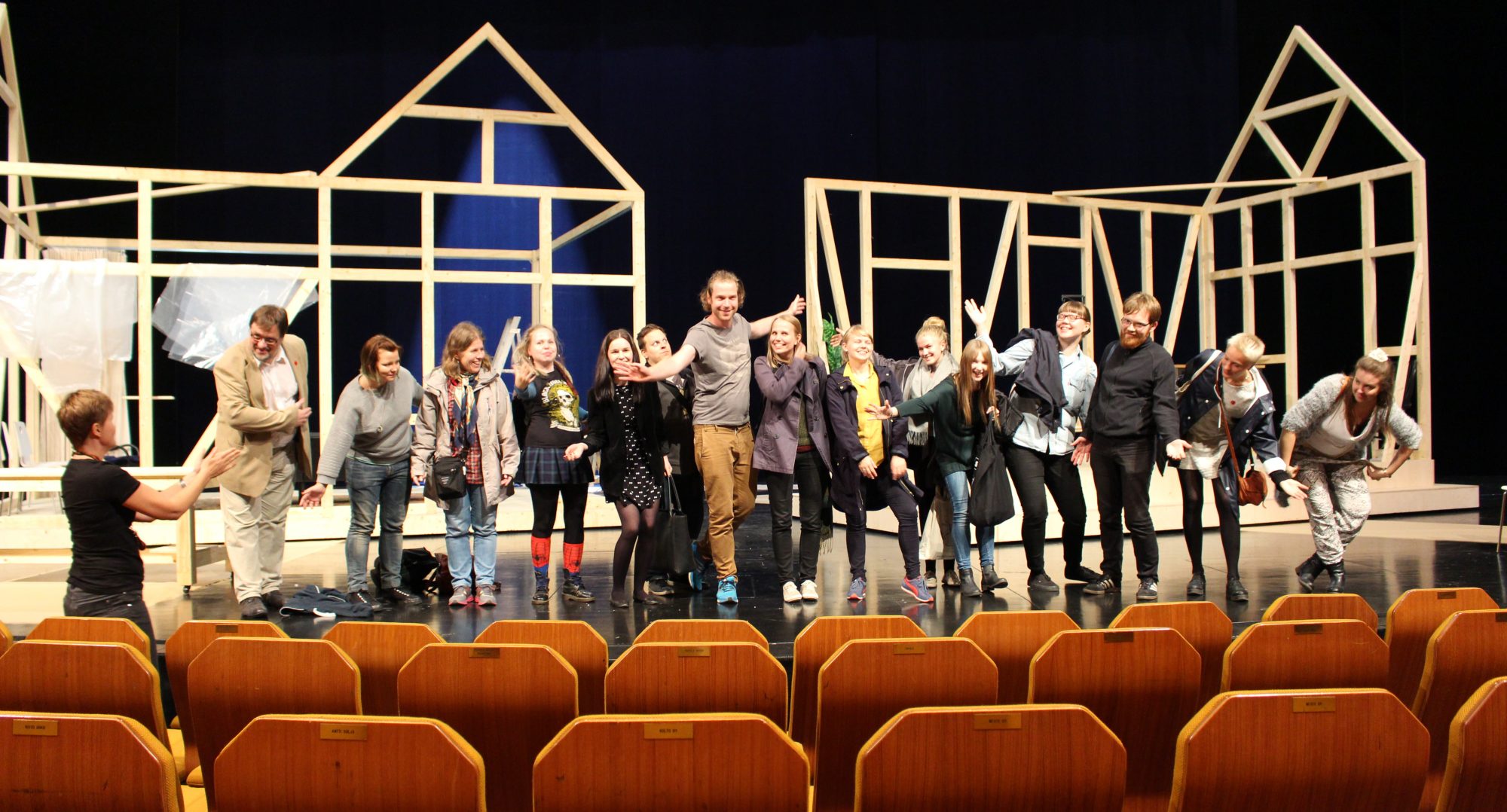I den här tredje och sista delen av texter som skrivits under kursen ”Kulturens digitala dimensioner” reflekterar Panu Heiskanen över hur hans syn på digitalisering och digital kultur förändrats under kursens lopp. Den här gången bjuder vi på ett litet språkbad på engelska.

Everything comes to end at some point – this time it is this course of digital humanities. Well, actually, the whole spring semester is almost over. Therefore, it is time to take a look back over the last months and gather some ideas and thoughts from the course.
This course has touched several themes on modern technology and digitalisation. We have discussed how digital technology has developed in the past and how the Internet became the most important communication channel of the present. We have also discussed challenges of digitalisation; how to preserve and archive something that only exists in digital reality; what digital culture actually is; which challenges in research we need to confront in the future.
After 15 blog posts written for the course, it feels almost impossible to really gather everything together for one text. Hence, I have gathered a couple of subjects and themes which I find the most interesting and instructive.
Modern communication and research
As a student in culture and communication, interactions and interpersonal communication is a very relevant subject for me. It is not really something new to discuss social media and modern technology as main communication tools today. However, this course has helped me to form some new perspectives on the subject.
First of all, I think it is very important to understand how most of our everyday communication occurs in digital reality. We do not write and send letters anymore. We may not meet each other as often as before because some interpersonal communication has found its place more in social media. As a matter of fact, we create a lot of data that can be used for a different kind of research in the future. Instead of reading old diaries, a researcher may scan through different blogs to understand how we used to live.
However, we have also discussed the challenges of modern communication. It is necessary to understand that the data may not be open for later research. Because of different laws, privacy policies and technology, we will lose data in different ways. Even though we might want to preserve data and information for the future, we cannot be sure if it will last very long. File formats will change. Databases will change. The technology itself will change and develop.
It may seem challenging to decide which tools and methods would suit best for gathering and preserving data today. Still, I think it is important that we try to find different ways to solve this problem. We need to accept that it is not possible to save everything but, at the same time, trust in those tools that we have now. As we have discussed, it is very important to see beyond one’s own academic discipline and to co-operate with others.
Quantitative material in humanities
Another big theme on this course has been databases and the amount of gathered data. It will be challenging to gather, preserve and process all the data we make in digital reality. Again, it is necessary to understand how to make the best of all the information that we can find in the present (and in the future).
One challenge lies in the methods of gathering and preserving data on databases. It might seem simple to just choose information and save it in a digital form. However, when there is countless forms of different kinds of data and information, there is a big risk that some of that will be lost because of bad practices. The thing is understanding how to preserve data in a way that it is accessible later and understanding how to label the data in the right way. In other words, there needs to be clear common practices if we want to make sure that all the gathered data will be found in the future. Tags, metadata and other attributes have to be made according to common standards.
I think it is also important to become familiar with the quantity of research material. I have to admit that I thought that I would not need to think so much about statistics when I began this master program. I thought that I had enough of statistics when I was rolling my BA degree in business administration. However, this course has shown that some knowledge of statistics might be needed in humanities. Because of big data and a large amount of information, it is necessary to look at the material in broader perspectives. I mean that it is not only details that matter but, that it is also good to understand the information in a big picture.
And yes, visualisations are a super important tool!
Summary: Me and modern devices
I have tried to gather some thoughts from this course. It is obvious that this short blog post will not touch on everything – even those themes which I have discussed should be worked out further to really deepen my knowledge. Anyway, I hope that I have shown how this course has influenced and inspired me to get deeper into digital humanities.
15 January, I wrote:
“Acknowledging the lack of my knowledge of digital devices, I set as a goal for this semester that I will challenge myself to see beyond the mundane surface of the present digital culture and society. I hope that at the end of this spring I will recognize more critically different phenomena in today’s digital spheres. As a humanist who wants to study and work with culture in the future, it is necessary to understand the impacts and consequences of contemporary digital development. I need to understand how different digital systems work.”
Looking back to the beginning of the course, I see that I have come to understand digitalisation and digital culture on a much deeper level than before. I think I have met my goal to pay more attention to different digital phenomena in the present. I understand the challenges of modern technology and how digital is not eternal. I understand some logic in social media much better now and, hence, I may benefit from modern communication more than before.
The course has been very interesting and educational. Although there have sometimes been some challenges of understanding every concept, I think that every task has found its place in the longer run. It has also been quite funny to write this blog. In the end, we produce different kinds of texts all the time here at the university. It is actually very good to learn how to write to the general public in this way.
I am sure that this course has given me new ideas and thoughts that I can apply later in my studies and my career in the future. I am happy to continue my digital journey now!
